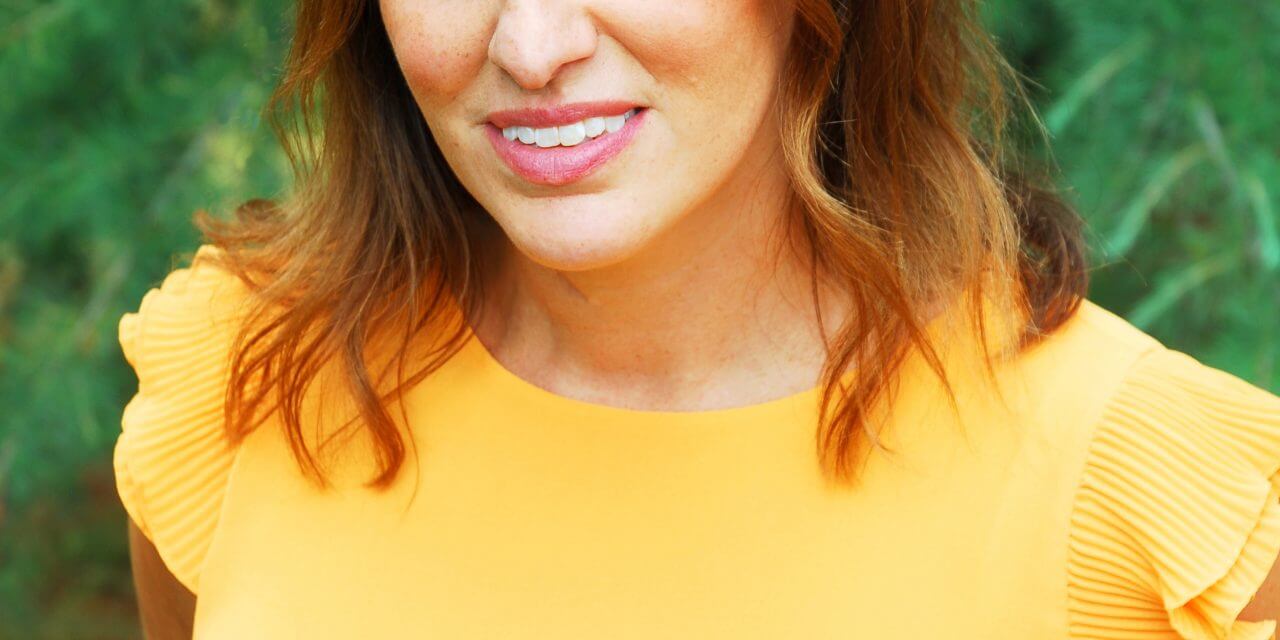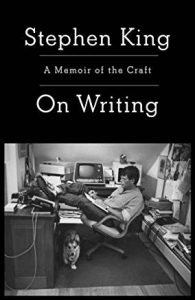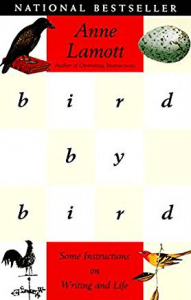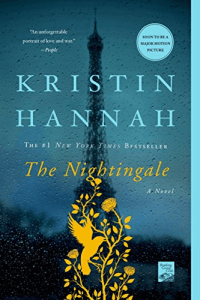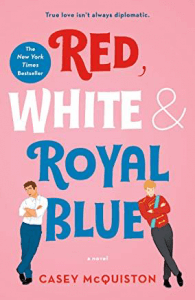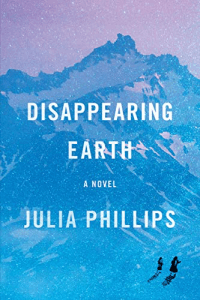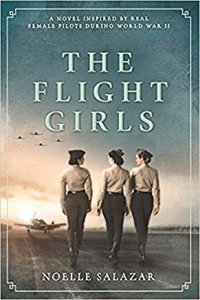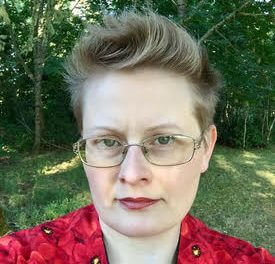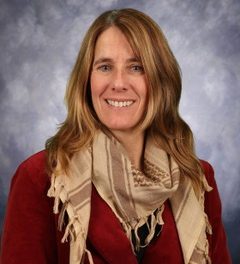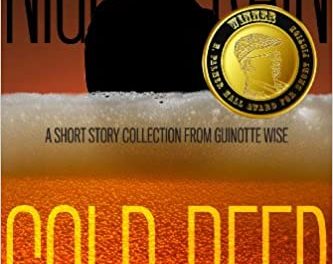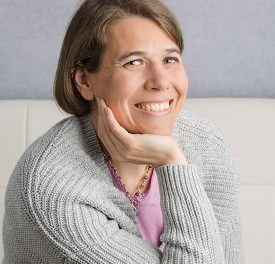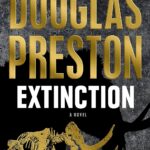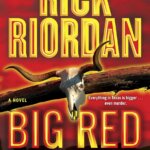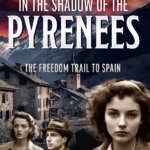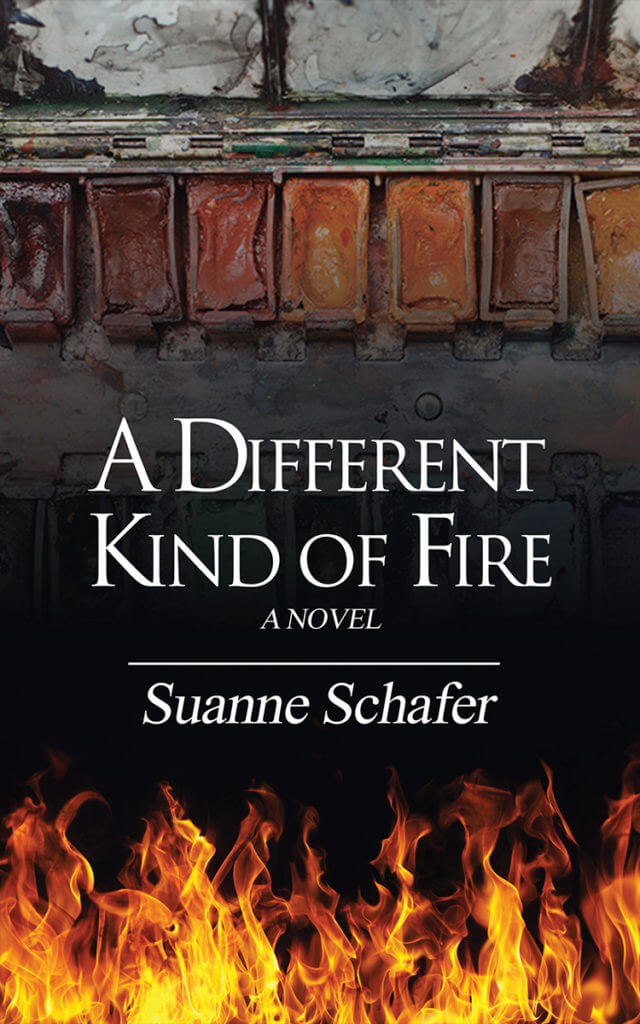Noelle Salazar joins me today to talk about her debut novel, The Flight Girls.
SS: Have you always been driven to write? Or did you begin writing in response to a particular stimulus?
NS: I’ve always loved story. In any form. Entertain me. Make me laugh. Cry. Get angry. Make me feel. So in the quiet moments, I daydreamed. Sometimes those dreams made it onto paper. A lot of times they didn’t. I was in my early 30s before I ever took my love of story seriously—and wrote one book, and then another. The second is being published July 2, 2019.
SS: Writing is undoubtedly a lonely occupation. John Green (The Fault in Our Stars) says writing is a profession for introverts who want to tell you a story but don’t want to make eye contact while doing it. P. D. James (Cover Her Face) says it’s essential for writers to enjoy their own company. Do you see yourself along those lines? Are you a natural loner?
NS: I am a natural loner. I can and have easily spent days by myself. Even as a young kid, I was happy being alone. I come from a loud and fun family, and while I enjoy being around them immensely, I also have always liked to wander off, sometimes keeping them in earshot for the company. Sometimes closing the door for the company of silence. I love quiet. I love thinking and imagining. I love to be in the car and letting my thoughts run wild.
SS: Could you say something about your relationship to your fictional characters? How autobiographical do you think your fiction is?
NS: Many times I think I write the woman I want to be. In Audrey, the protagonist of The Flight Girls, there is a hint of me, but she is her own woman—a woman I think I wish I had been at that same age. I was a fearful girl. A worrier. Audrey is a warrior. My characters may share a love for sweets like me, a favorite color, but they are always something I wish to be and don’t feel I am.
SS: Do you hide any secrets in your books that only a few people will find?
NS: In my second book there’s a name that means something that relates to my first book. There are two YA stand alone books I hope to write one day, but in the first one, I want to have a brief scene where the protagonist crosses paths with the protagonist of the second book.
SS: What part do your own fears play in your fiction?
NS: Fear of rejection. Or not succeeding.
SS: Isabel Allende starts all of her books on January 8 because she started The House of Spirits on that date. Do you have any superstitions or creative rituals about your writing?
NS: I don’t. Maybe I should get some! Always eat Brown Sugar Pie and drink coffee when I reach page 200. Huh—that could take a while. Page 11.
SS: What are you working on at the moment?
NS: A historical fiction set in The Netherlands during WWII. Two sisters who join the Resistance at a young age and, among other things, seduce and kill Nazis. It’s inspired by two real sisters.
SS: At what point did you come up with the title? Did your publisher change it?
NS: I always knew the title of my novel. To me, it was perfect. It was who Audrey, the protagonist, is. But then the publisher wanted to change it. Apparently one of the words in the title doesn’t sell well if it’s a woman’s book. I don’t agree. As a woman, I would be even more intrigued. But such is the process, and the new title is lovely and lets readers know a bit of what the book is about. A key selling point it turns out.
SS: Do you generally write in one genre? If so, what is it? And what can readers expect from one of your books?
NS: I never thought I’d write historical fiction, which is funny since I have always loved learning history. And love when books have even a hint of historical fact laced within whatever else is going on. But I don’t intend to only write the one genre, my mind is full of so many other stories. What I read is incredibly varied – I’d like what I’d write to be the same. There are a few YA stories I want to write. And a female mercenary series. I also would love to write a few light and fun rom-com type novels. I love when a book has good banter – and women are hilarious when you get them in groups. I want to write that. I want to make women laugh and nod their heads because they’ve been there too. What can readers expect from one of my books? Weird, fun, complicated women. And hopefully, inspiration.
SS: If you were trying to describe your writing to someone who hasn’t read anything by you before, what would you say?
NS: That many times it features a woman or girl who is striving. Who is hopeful. And who will save herself.
SS: Are you looking to entertain or illuminate?
NS: Both.
SS: Do you believe you write the kind of book you’d want to read?
NS: Yes. In fact, that was the reason I started writing novels. I read that old “write the book you want to read” and took it to heart. My first novel (which is tucked away in a file) was about vampires. I happen to love them. So I wrote them. And then I wrote The Flight Girls, a novel about hope, the female spirit, perseverance and love. It is exactly the kind of book I’d pick off a shelf, hurriedly purchase, and spend the next several hours curled up on my bed with.
SS: Khaled Hosseini (The Kite Runner) feels he discovers a story rather than creates it. Are you a plotter? Or do let the novel develop organically?
NS: Total pantser. I do try, once I’m pretty deeply in, to make an attempt at outlining. It looks something like: Chapter 6—these three things need to happen. And GO! I know key things that need to happen, but I let the characters get there on their own.
SS: Me, too. I feel like if I plot everything out, all the fun is gone from writing. How did you make the decision regarding point(s) of view?
NS: I love writing in first person. Seeing it all through one person’s perspective. That being said, in the future I’d love to experiment with other points of view.
SS: Who is the protagonist in your most recent work? Describe him/her in ten words or less.
NS: Hannah Vinke is a sixteen-year-old Dutch girl who in the beginning of the story has no idea who she is. But by joining the Resistance she learns she is tougher than she ever knew she’d had to be, and also wily, cunning, and a little bit dangerous. I love her. That was more than ten words. I never do that right.
SS: Do you know the ending to your story when you put pen to paper? If so, have you ever changed the ending after you started to write?
NS: I don’t start a project unless I know how it ends. I want to know where I’m going, but not necessarily how I’ll get there. And no—I never change the ending. Yet.
SS: According to F. Scott Fitzgerald (The Great Gatsby), a novel is never really finished but only abandoned. How does this apply to your own work?
NS: I agree. There is a point where you just have to let it go. One could edit and revise forever on one project. Even as I handed in my last pass notes, there was so much I wanted to add or change or take out. But at some point, if you ever want to be published, you have to surrender the work. There are certain things in my novel that were taken out that I’d love to put back in. A character removed that I loved. A post Pearl Harbor scene I wish was still there as I felt it explained so much of who my protagonist was and what she became. There was less romance. But, as it stands, I love what the novel became and am proud to put it into the world. And side note: The middle name of my protagonist, Audrey, is Fitzgerald—after F. Scott.
SS: If you were deserted on an island, which three people would you want with you? Why? One fictional character from your book, one fictional character from any other book, one famous person that is not a family member or friend.
NS: My book: Audrey. She’s sensible, kind, and funny. Any other book: Elizabeth Bennett—for the same reasons. I think we’d all have a great time gabbing and debating. Famous person: Henry Cavill. Because yum.
SS: Which famous person, living or dead would you like to meet and why?
NS: Eleanor Roosevelt. The epitome of grace and intelligence. I’d love to talk about life and love and the world with her, to hear her opinions and gain some wisdom and insight.
SS: If you could have been the original author of any book, what would it have been and why?
NS: Disappearing Earth by Julia Philips. I think it is a stunning debut novel. I love how different it is. How intriguing. How quiet and lovely. It’s hard to read on one hand because of the subject matter, but hopeful in the end.
SS: When you are creating a story, do you avoid any books in the same vein so as not to be influenced by others, or do you seek out all possible variations for maximum inspiration?
NS: When I first started out I did avoid other books and shows in the same vein. I didn’t want to feel as though I were copying anything. But then I read something by an author I can’t remember that said, find your favorite book in the genre you’re writing and use it as an outline. A guide. Don’t copy—but do find what they did that works and find a way to do the same in your own way. I found that very helpful.
SS: What writer would you be most thrilled to hear wants to meet you?
NS: Jane Austen. It would be truly thrilling since she’s dead. And scary. So let’s go with someone alive. JK Rowling. I think her creative brain is of epic proportions and I just want to sit, have tea and biscuits (lots of biscuits please) and talk world building and character development.
SS: Do the parts of your story that move your readers most move you as well? Or does your special position as Creator give you a different ear for the highs and lows of the tale?
NS: I still cry when I read certain parts of my story. I can’t even talk about the ending without tearing up.
SS: Me, too. There’s one scene in A Different Kind of Fire where I tried to show my protagonist’s reaction to her stillbirth as she, an artist, would feel it. So she doesn’t cry but imprints the baby on her memory with color, texture, shape. It’s very moving, even after a million times working it over. Do you believe in writer’s block? How about reader’s block?
NS: I don’t believe in writer’s block. I believe that sometimes you feel like you don’t know what you’re doing – but you just write your way out of it. Get all the crappy words out and push through. Just write write write. Eventually, you’ll come out the other side of your weird, irritating tunnel and breathe. Words can be rearranged and fixed. Blank pages are daunting. Fill them!
Reader’s block I fully believe in. Sometimes I just can’t find anything to get into. Not in the mood, not in the mood, not my style, too deep, to flippant, too complicated. I sometimes get in such a funk over not being able to get into a book—ANY book—that I feel as though my whole body has deflated and I’m a little bit lost. This is where Netflix comes in to save the day with some great binge-worthy show—which usually sparks my interest in a particular subject and then a book catches my eye and I’m off and running once more.
SS: What advice would you give aspiring writers?
NS: Writing is hard. Writing will make you mad. Writing will make you cry and throw things. Nothing will come of it. So many things will come from it. Writing is cathartic. Don’t write to be famous or have money. Just write. Whatever your end goal—write. Don’t know your end goal? Write. People laugh at your end goal? Write. You’ve never told anyone you love to make words into sentences? Write. Go for it. Find a community or don’t (I only recently got myself one after years of pecking out words). Remember why you started. Don’t give up.
SS: Is there a phrase or quote about writing you particularly like or that inspires you?
NS: “There is nothing to writing. All you do is sit down at a typewriter and bleed.” Ernest Hemingway
SS: Are there any books on writing you find particularly useful and would recommend?
NS: Bird by Bird by Anne Lamott and On Writing by Stephen King.
SS: What’s the first book you read that made you think, “I’ve got to write something like this someday!”
NS: The Nightingale.
SS: The key trick in writing historical fiction is transporting readers to another time and place without overloading them with historical information. So how much detail is too much?
NS: I think that when painting a scene, noting an era-appropriate detail or two is enough to remind the reader where they are—but when a writer goes on and on, I tend to feel Okay, we get it, you did your research. Can we get back to the story now? I like detai,l of course, to set the scene, but don’t drown me in it. It pulls me out, and I start skimming.
SS: How do you make sure you long hours of research don’t show up on the page?
NS: By hinting at the period of time the story is told in. A phrase or slang word. The mention of a particular kind of hat or shoe. I think when a writer does enough research and knows the back story well enough, they are able to tell the story as if they are there. And if you are there, you aren’t shouting about every historical detail at every moment.
SS: What are the ethics of writing about historical figures?
NS: I think that if you don’t have enough information, you should either steer clear or only present what you know to be accurate. I had someone tell me once about my book that I should’ve based it on a real woman. But I had a couple thoughts about that. 1) Their stories weren’t mine to tell. It was for them and their children and grandchildren. And 2) I wanted a story that spanned more than just those couple of years the WASP served. I wanted to tell a specific story. So had I made it a real person and then gave her a life she never had—to me that would’ve seemed as though I didn’t feel her story was good enough.
LIGHTNING ROUND:
Describe your books in 3 words: Hopeful. Persevering. Feisty.
Favorite thing about your genre? Learning something new about the time period or just a story not well-known or never told before.
Another genre that you would love to write: Women’s fiction. Something humorous. Also … a good suspense novel. Something with a female assassin in it.
When writing, are you a night owl or morning person? Funny thing, I’m naturally a morning person—but when I write, I like the quiet of the later hours.
Pantser or Plotter? Pantser. Total pantser. Trying to be better about doing a little plotting though… it does help.
Book you’re currently reading: Ooh—just read Disappearing Earth by Julia Phillips. About to read Red, White, and Royal Blue.
Your favorite guilty pleasure: A big spoonful of peanut butter and a small bowl filled with chocolate chips for dipping.
Number one book boyfriend or girlfriend is: Oh, Mr. Darcy …
Your favorite historical personage: Eleanor Roosevelt.
Your favorite historical era: 1940s.
What is your favorite historical movie? Hidden Figures! Or … Argo. The Post?
********************
Noelle’s novel The Flight Girls is available through:
